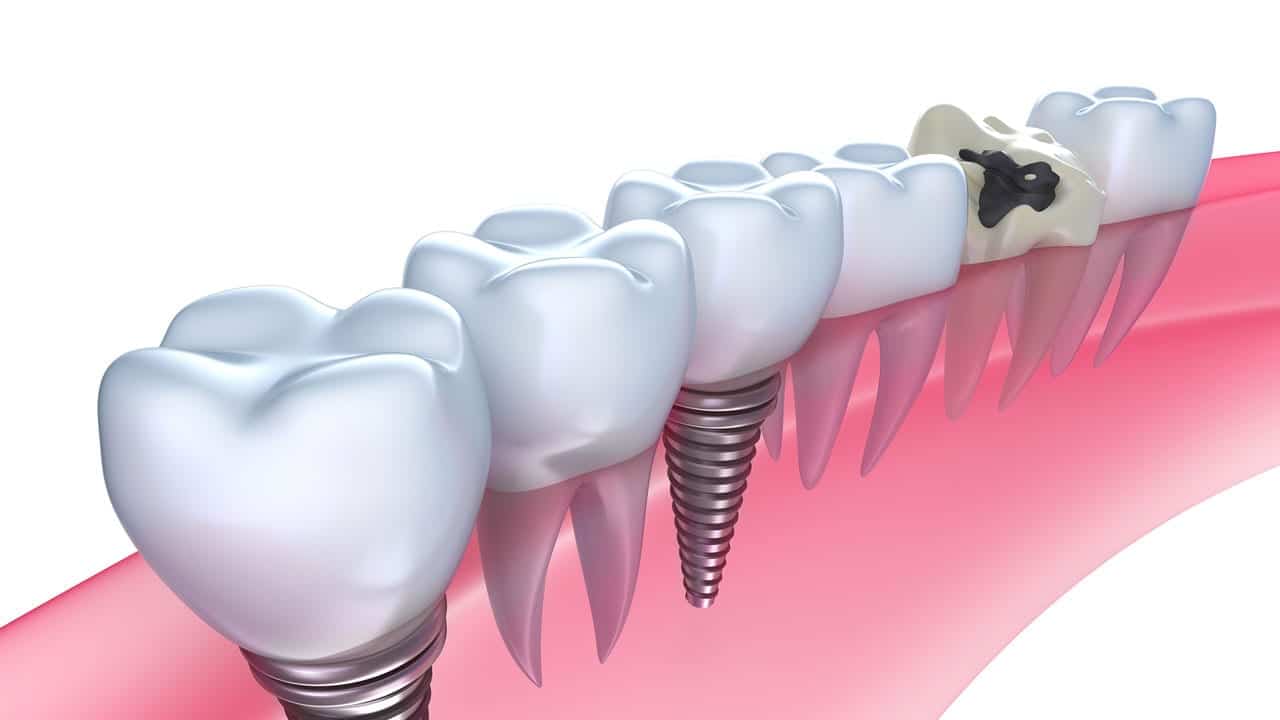
After any medical procedure, you try to do your best to follow doctor’s orders and take care of your health. Whether it’s simply a prescription for some rest and relaxation, or a more diligent routine of medications and exercises, it’s important to do what you can to be proactive about avoiding further injury or relapse after a procedure. Sometimes, however, things are out of our control and accidents or complications can happen with little warning! Oral surgeries and procedures are no different. While complications from dental implants are rare—less than 2 percent of procedures are unsuccessful—and are usually easily treated, they can happen. To prepare for any possible issues after your dental implants are placed, keep reading to learn a bit more!
The Basics
A dental implant is an artificial tooth fixed to a titanium rod that is positioned in a patient’s jaw, and they usually last decades, if not a lifetime. Dental implants are a great way to help replace a missing tooth or fill in an unsightly gap in the teeth. In fact, according to the American Dental Association (ADA) over 3 million Americans have dental implants and that number is expected to continue to grow as cosmetic dentistry becomes more popular.
Possible Problems While Healing
After an implant is placed, it needs to adhere to healthy bone and gums in order to cement itself in place. If the implant becomes loose after surgery, complications can arise. While there will likely be no pain or infection, the implant itself will feel slightly loose in the mouth. Loose implants are more common in places prone to lower bone quality—such as the upper, rear jaw near the molars, on narrow ridges, on places where bone grafts have been performed, or in the lower front of the jaw. Smokers and patients with uncontrolled diabetes are more likely to experience loose implants.
Possible Problems After Healing
Sometimes the implant anchors perfectly into the bone and appears to be functioning properly for some time. If the bone was strong enough to implant the titanium rod, but not strong enough to continue to support the new tooth, the implant can loosen after healing is complete. If this happens, the implant will need to be removed and the bone treated before a new implant can be placed. Other times, gaps can form between the implant and natural surrounding teeth because the implant is not the exact size and shape of the missing tooth it is replacing. This can cause food to become lodged in new gaps and create mild discomfort. In this case, it is possible to simply replace the crown for a better fit.
Fortunately, very few people suffer from any complications from their dental implants and most can start using their new implant like a natural tooth within a few days or weeks! It’s important to be aware of the risks involved with any medical procedure, however, and your dentist will be able to answer any questions you have about the implant process and healing period.
To ask any questions, or schedule a consultation for one of the best dental implants Chicago, IL has to offer, or if in need of an emergency dentist in Chicago, IL, give us a call at Oradent Associates today!
